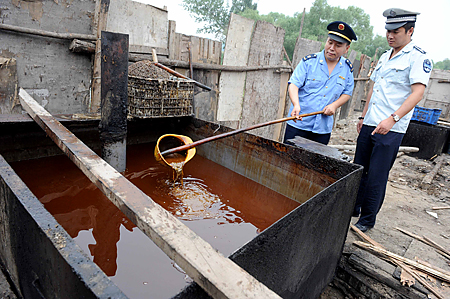Food safety has become a focus of attention worldwide. In China, one of the top concerns in food safety is gutter oil, known as ‘swill-cooked oil.’
 This Commentary summarizes the key incidents disclosed to the public by the media, and the policies regarding gutter oil at national, regional, and provincial or city levels.
This Commentary summarizes the key incidents disclosed to the public by the media, and the policies regarding gutter oil at national, regional, and provincial or city levels.
Several challenges the country still faces in tackling this issue are identified, including a lack of evaluation of the implementation and effect of the policies, a lack of effective technology to detect and recycle gutter oil, and the overlooking of the hazardous effect of gutter oil on health.
This commentary suggests that strengthening policy implementation and evaluation, improving measurement and recycling technologies, and launching public health campaigns would help eliminate gutter oil from dining tables.
Gutter oil: an overview of Chinese food safety issues and policies
Global Health Promotion
Jia Li1,2, Naizue Cui2, Jianghong Liu2
1School of Medicine, Jinhua Polytechnic College, Jinhua, Zhejiang,
- China
- 2School of Nursing, University of Pennsylvania, Philadelphia, USA
http://ped.sagepub.com/content/early/2016/03/31/1757975915623733



 "Gutter oil" is made by taking used up cooking oil, often left over from restaurants, along with spent animal fat, and reprocessing it into edible oil to be sold to restaurants.
"Gutter oil" is made by taking used up cooking oil, often left over from restaurants, along with spent animal fat, and reprocessing it into edible oil to be sold to restaurants.